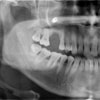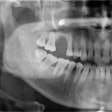The risk of all-cause death appeared to rise significantly with the rapid progression of tooth loss after adjusting for baseline tooth count and other factors, according to a study published recently in BMC Geriatrics.
This study highlights how critical it may be for dentists to monitor tooth loss progression, the authors wrote.
“It is reasonable to suggest that healthcare professionals and the general public should be aware of the potential adverse prognosis associated with a rapid progression of tooth loss,” wrote the authors, led by Ningying Song of Sichuan University in Chengdu, China (BMC Geriatr, October 10, 2025, Vol. 25, 769).
Research has shown that tooth loss can be a risk factor for cognitive impairment and brain shrinkage in the hippocampus, a region that has significant ties to memory and Alzheimer’s disease. In the past, research that investigated a correlation between tooth loss and mortality often relied on a single assessment of baseline tooth count.
To explore whether tooth loss progression was linked to death independently of how many teeth older adults had at baseline, a study was conducted using the Chinese Longitudinal Healthy Longevity Survey.
For this study, 8,073 adults with a median age of 83 were included. Tooth loss progression was categorized as stable with zero tooth loss per year, slow loss as no more than two teeth, moderate as two but no more than four teeth, and rapid as four or more teeth. Furthermore, the study outcome was all-cause death, and regression analysis was conducted to study the association between mortality and tooth loss, the authors wrote.
During a median follow-up period of 3.5 years, 5,176 adults died. After adjusting for baseline tooth count and confounders, the mortality risk significantly increased with a more rapid progression of tooth loss, they wrote.
Compared to those with zero tooth loss, adjusted hazard ratios (HRs) for mortality were 1.11 (95% confidence interval [CI]: 1.03 to 1.20) for the slow loss group, 1.20 (95% CI: 1.09 to 1.32) for those with moderate tooth loss, and 1.33 (95% CI: 1.19 to 1.48) for those with rapid tooth loss, respectively, the authors wrote.
Nevertheless, the study had limitations. Since the study focused on older adults in China, caution must be used when generalizing findings to other age groups, regions, or ethnicities, the authors wrote.
“Among older adults, the risk of all-cause mortality significantly increased with a more rapid progression of tooth loss, regardless of baseline tooth count,” Song and colleagues wrote.




















